.webp?width=900&name=Header_HardSeltzerProsAndConsofExpanding%20(1).webp)
Hard Seltzer has proved to be more than a fad, but how easy is it to enter this crowded market?
There’s a myth going around that craft hard seltzer is a simple pivot for a craft brewery. After all, it’s just fermented and carbonated sugar water, right? You have plenty of microbrew equipment to make all the fermented beverages you want.
You might have even heard hard seltzer production is a sign that a small craft brewery has sold out in the interest of a quick buck, which, depending on how hard the pandemic hit a brewery’s profits and how interesting their seltzers turn out to taste, can be met by varying degrees of acceptance by brewery fans.
The truth is that the pivot has been anything but simple. Despite the challenges, the market loves hard seltzer, and breweries are responding. The image that hard seltzer is healthier and more suitable to an active lifestyle than traditional craft beer styles has caused many brewers to add hard seltzers to their portfolio. However, these same brewers also discovered that creating a crisp, refreshing, and flavorful hard seltzer is far more complicated than adding some fruit essences to a sparkling malt beverage.
.webp?width=582&height=213&name=Content_HardSeltzer_CAGRMarket%20(1).webp)
There has been a fair amount of growing pains as brewers devoted much of their brewery operations to figuring out such diverse challenges as fermentation, flavoring, preservation, and even branding. Their trailblazing has left a wealth of information as to how your brewery can start producing hard seltzer that will appeal to a new audience without losing their core customer base. Is an expanded lineup of hard seltzers right for you?
You can weigh these pros and cons and see where the scales tip for your microbrewery.
The PROS of Adding Hard Seltzer as a Product Line
For the pros of hard seltzer, let’s start with the pros of hard seltzer. The top brands nationally are far and away White Claw (owned by Mark Anthony Brands, maker of Mike’s Hard Lemonade) and Truly (owned by Boston Beer Company, owner of Sam Adams and Dogfish Head). They’ve dominated the market thanks to their marketing and branding that pitched their hard seltzers as the drink of summer fun, especially White Claw, which lead to the common phrase, “White Claw Summer.”
The doors for hard seltzer have been opened in the popular consciousness. And while distributors are flooded with products attempting to ride the coattails of the industry leaders, the market isn’t so saturated that innovative products within this new style of drink won’t stand out.

Pro #1: A new possibility for experimentation
Craft brewers, experimenters by nature, are always looking for new flavor profiles and styles to bring in new customers and win over craft aficionados. While hard seltzer isn’t generally given the same respect as craft beer, the tide is turning as more and more respected breweries are creating exciting new hard seltzers. The results have been as varied as craft beer itself, with some breweries experimenting with natural fruits and colors, high ABVs, and even hops to mimic the mouthfeel and taste of beer.
Pro #2: New customers
These new drinks appeal to customers that breweries otherwise wouldn’t have, filling taprooms and winning new customers in stores and restaurants. While these new customers might never look twice at a craft beer, they’re more than happy to enjoy that same brewery’s high-quality seltzer. The pandemic did no one any favors, but craft breweries, in particular, seemed to suffer. With so many younger drinkers tending toward healthier drink options, the losses to breweries could have become permanent had many not embraced alternative products. This also tends to be a great go-to beverage for those who have celiac or gluten intolerances.
Pro #3: Inexpensive ingredients and fast production
The ingredients of a basic hard seltzer are far less expensive than those of a craft beer. Generally, it’s just carbonated water, alcohol created from fermented sugar-water, and a flavoring (which led some breweries to believe it would be simple to make, but more on that in the cons section). Once you have your technique down, fermentation is quick — just make sure you have equipment available to create carbonation and infuse flavors into your drinks.
The CONS of Adding Hard Seltzer as a Product Line
For the cons of hard seltzer, pay attention to the lessons that craft brewers learned from their early attempts at creating hard seltzers. The results were not always appealing as the breweries tried to figure out what would work and what wouldn’t.

Con #1: Getting it right takes work
Getting sugar water to ferment can be more difficult than you might assume since the ingredients don’t provide much nutrition for the yeast. Time, temperature, and size of containers are just a few of the metrics that need scrutinizing to achieve the best yield. Your additives, such as your fruit flavorings, can affect the final ABV and pH balance. It just takes a healthy amount of experimentation.
Con #2: Crowded competition
The number of hard seltzers on the market is increasing rapidly. You’ll need to identify the holes where your product can squeeze in. What are the other breweries not doing? What flavors have they not used? Experimenting with your formula goes beyond getting it to ferment properly; it means finding a unique and compelling beverage the other breweries aren’t already making.
Con #3: Negative feedback
You may face criticism once you announce a new line of hard seltzer. Some loyal drinkers may feel that a pivot to hard seltzer is like a betrayal. For some, it’s difficult to accept that their favorite brewery would cater to an audience that chooses or prefers seltzer over beer.
How Can Pack Leader USA Help?
If you’ve decided that it’s time for your brewery to step out and introduce a new hard seltzer to your customers, you might need to add some new equipment to your line. Whether you need to accommodate new package and container designs or meet higher demand, you need a label machine that will do the job right and do it quickly. Pack Leader USA will help you determine which labeling equipment makes sense for your operation and how you can use it to its greatest potential and satisfy your operational goals.
More reading:
- The Brewer’s Guide to Craft Beer and Microbrew Labeling Equipment
- What is Hard Seltzer? The Truth About This Fizzy Fad
- Craft Breweries are Making Hard Seltzers that Actually Taste Great
- Winemakers, Craft Brewers, and Big Beer Can’t Ignore Hard Seltzer
- Benefits of Expanding into New Markets
- Hard Seltzer: We Can Do This the Easy Way, or We Can Do It the Hard Way
- Need new equipment? Check out the R&D Tax Credit for manufacturers.
- More articles on craft beer
- Labeling equipment for breweries
.webp?width=200&height=114&name=2x-Packleader-logo-large%20(1).webp)

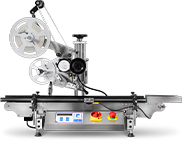
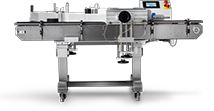
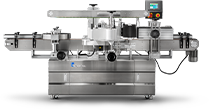
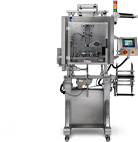
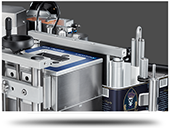
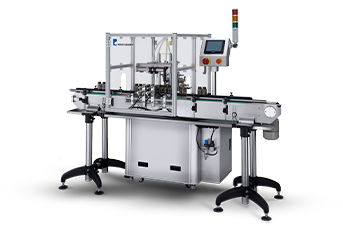
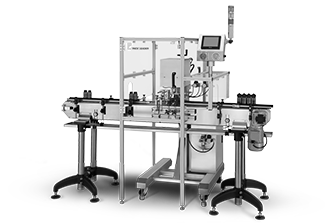
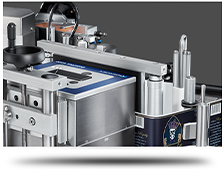




.webp?width=360&name=2x-color-logo%20(1).webp)